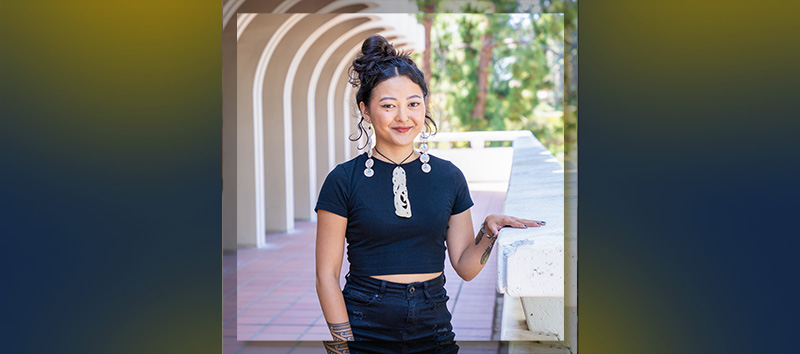
Library Assistant Leialani Wihongi-Santos Advocates for Greater Inclusion and Representation of Pacific Islander Literature
A critical milestone has been reached for the Asian Pacific American Librarians Association (APALA) and the broader Asian American and Pacific Islander (AAPI) community. APALA announced upcoming changes to the Asian Pacific American Awards for Literature after receiving a letter of concern from five Indigenous Pacific Islander library workers: Nicola Andrews, Keahi Ka’iwalani Adolpho, Stephen Shaw, Neil Ordinario, and Leialani Wihongi-Santos. That letter was part of a long-standing dialogue advocating for greater inclusivity and representation within these awards—a dialogue that has been sustained by many Pacific Islander library workers over the years.
In a response to the letter of concern, on June 3, 2024 APALA acknowledged the lack of representation among past award winners and announced changes to its award criteria. Changes include the addition of a poetry category, separate awards and honors for the Asian American and Pacific Islander categories, and outreach efforts to Pacific Islander publishers, among others.
Leialani Wihongi-Santos, a library assistant with UCI Libraries Access Services who was recently featured in an episode and live recording of NPR’s Inheriting podcast, shares here the importance of this milestone and what it means for the Pacific Islander community.
What prompted you to submit the letter of concern to APALA?
Wihongi-Santos: Over the past 23 years, although APALA has issued 191 awards, none have been awarded to an Indigenous Pacific Islander. This exclusion of Pacific Islanders highlights a broader issue of erasure and tokenization of Pacific Islanders within AAPI-serving spaces. The decision to revise the award criteria is not merely an administrative update, but a necessary and critical step toward correcting this historical oversight.
What changes have been made to ensure more inclusion and recognition of Pacific Islander literature?
Wihongi-Santos: The new criteria aims to ensure that Pacific Islanders are recognized and celebrated for our rich (hi)stories, artistry, and contributions to literature. This change is integral not only to DEIA (diversity, equity, inclusion, and accessibility) efforts in the organization, but it also regrounds us in a practice of solidarity between the two communities, which is the foundation of the AAPI label and its coinage. By being more intentional and inclusive with these awards, we honor and acknowledge the unique cultural narratives and experiences of Pacific Islanders, who have always deserved recognition in these spaces.
Why are these changes important for the Pacific Islander community?
Wihongi-Santos: For the Pacific Islander community, this change is a profound acknowledgment of our place within the AAPI narrative; the “PI” is not silent. I hope these changes make Pacific Islander stories more accessible and that it is both inspiring and affirming to the community that our voices and narratives are essential and are deserving of being shared and heard.
As we look to the future, these changes represent a new chapter in the story of the Asian Pacific American Awards for Literature. It is a chapter that promises to be more inclusive, more representative, and more celebratory of the diverse cultures and communities that make up the AAPI umbrella.
I would like to extend my deepest gratitude to UCI Libraries for supporting my attendance at the International Indigenous Librarians Forum in 2024 through the High Priority Initiatives Funds. This opportunity allowed me to meet Nicola Andrews and Stephen Shaw, who welcomed me into this heartwork (work that one feels deeply charged with doing to heal soul wounds, a community’s collective, generational trauma) where I also got to meet Neil Ordinario and Keahi Ka’iwalani Adolpho.
To learn more about Leialani Wihongi-Santos and her advocacy efforts, listen to Episode 7 and view the live recording of NPR’s Inheriting podcast:

